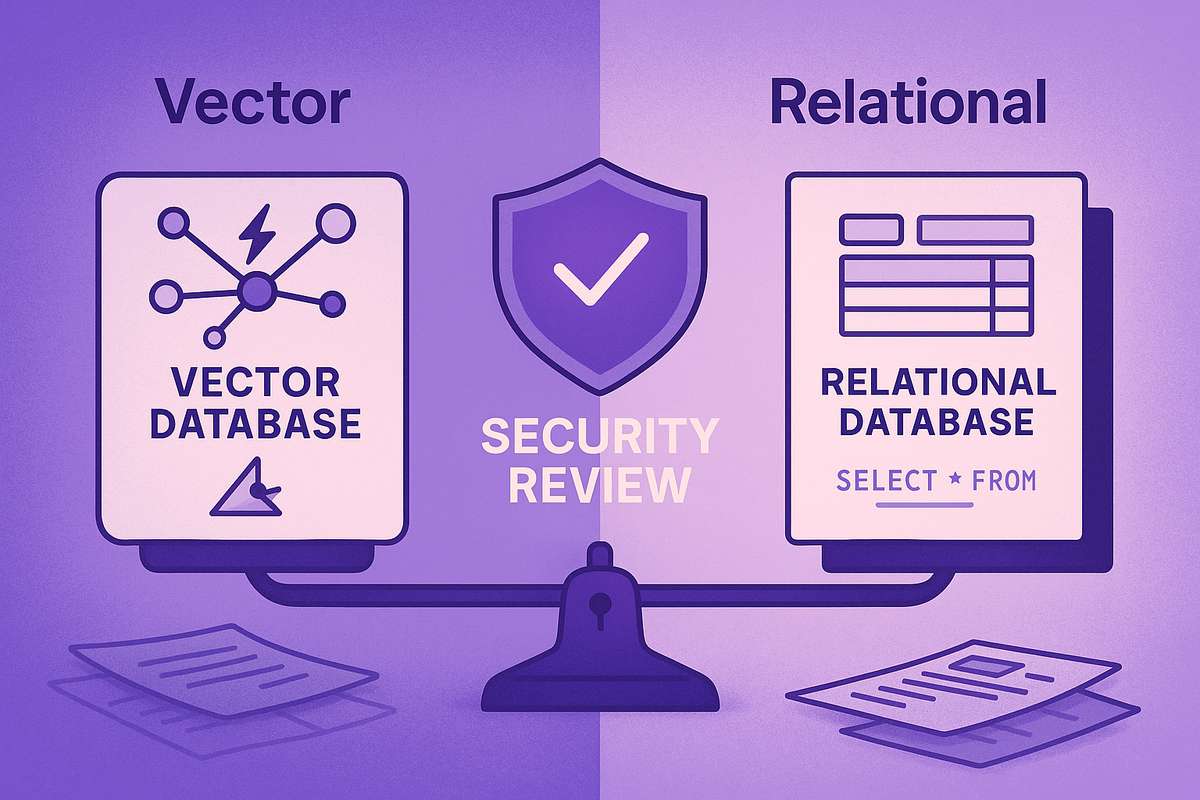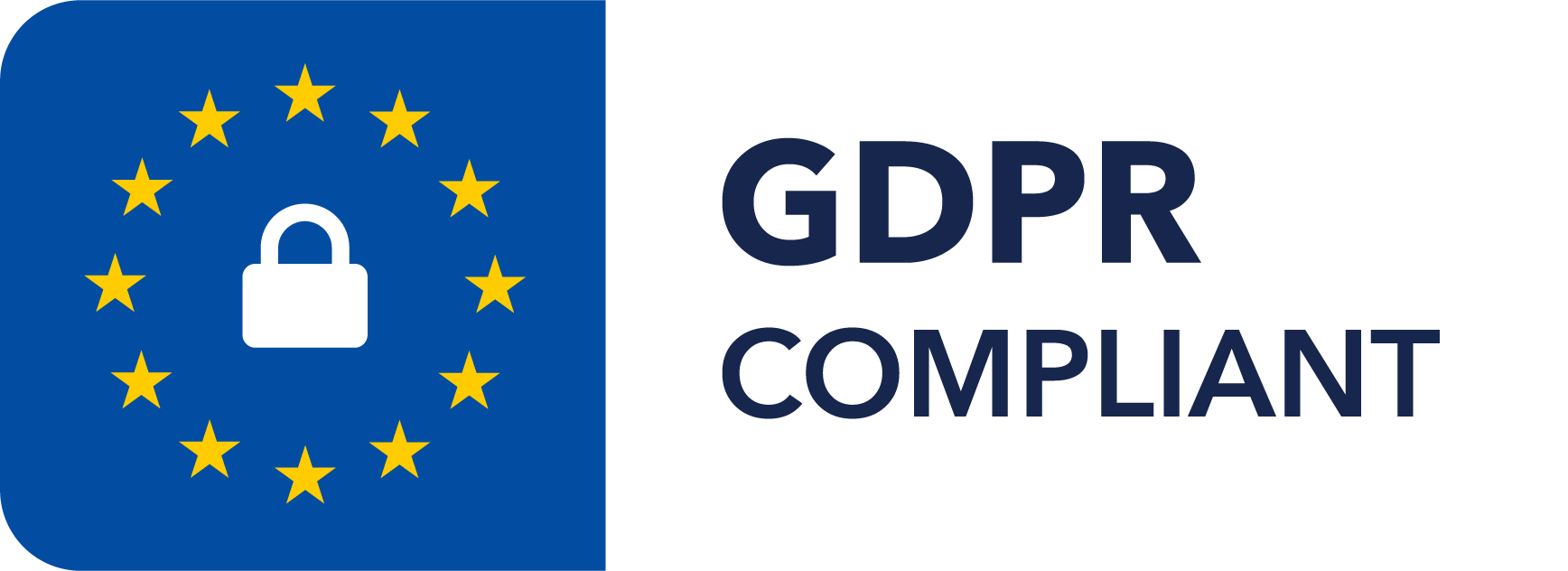Vector vs. Relational Databases for Security Reviews
September 8, 2023
By
Luna

Vector Databases vs. Relational Databases: Which is Best for Security Questionnaires and RFPs?
Are you tired of security questionnaires and RFPs that make you want to pull your hair out? You’re not alone. The good news? The right database approach can transform how you generate accurate, consistent, and creative responses. Let’s break down vector databases vs. relational databases in a way that actually makes sense.
Relational Databases: The Dependable Classic
In the red corner, we have the Relational Database — the dependable grandpa of data storage. Think of it like your old uncle who insists on telling the same stories at every family gathering.
Relational databases are excellent for structured data and maintaining consistency. But when it comes to generating fresh, one-of-a-kind responses for complex security questionnaires and RFPs, they fall short. Why? Because relational databases can only serve pre-written, structured answers. They’re reliable, but not flexible.
✅ Great for: structured data, reporting, repeatable queries
❌ Weak at: nuanced, dynamic responses to unique RFP questions
Vector Databases: The Innovative Game-Changer
In the blue corner, we have the Vector Database — the wild child of data storage. Imagine that quirky cousin who’s always up for an adventure.
Vector databases handle unstructured data with ease, enabling AI systems to search across context, meaning, and relationships — not just keywords. When it comes to whipping up unique, nuanced answers for those tricky RFPs and security questions, vector databases shine.
✅ Great for: semantic search, AI-powered answers, unstructured content
❌ Weak at: traditional structured data operations
How Vector Databases Transform Knowledge Management
Beyond powering AI-driven RFP responses, vector databases redefine how organizations manage institutional knowledge. Traditional databases require rigid schemas that limit how information is connected, but vector storage enables dynamic relationships between ideas, documents, and context. This means security, compliance, and sales teams can instantly surface the most relevant and up-to-date content — even if it’s phrased differently or stored in different formats. Over time, the system learns from past responses, continuously improving accuracy and adaptability across every questionnaire and proposal.
The Showdown: RFPs and Security Questionnaires
Here’s the bottom line:
- Relational databases are like reheating last night’s leftovers — predictable but uninspired.
- Vector databases are the master chefs, cooking up fresh, tailored responses every time.
When you’re battling endless compliance questions and security reviews, vector databases enable smarter, faster, and more accurate responses.
Why Iris Uses Vector Databases
At Iris, we’ve built our AI engine on top of a vector database. Why? Because tackling RFPs and security questionnaires requires nuance and adaptability. With vector search, our AI can:
- Generate context-aware responses
- Deliver unique answers tailored to evaluators
- Eliminate repetitive, boilerplate content
Say goodbye to database limitations and hello to smarter, faster, more AI-driven RFP automation.
The Future of AI-Powered Procurement and Sales
As enterprises adopt AI-driven workflows, the combination of vector databases and automation platforms like Iris is becoming the gold standard. This technology doesn’t just make teams faster — it makes them smarter. Imagine automatically generating compliant, client-specific RFP responses within minutes, or instantly mapping previous security answers to a new vendor’s requirements. That’s the future Iris is enabling: seamless collaboration between AI and human expertise, where knowledge evolves and scales with every deal.
Conclusion
When it comes to vector databases vs. relational databases, the winner is clear: vector databases. For organizations struggling with time-consuming security questionnaires and RFPs, adopting an AI-powered platform like Iris ensures your responses are accurate, compelling, and never just copy-paste.
Frequently Asked Questions
1. What’s the main difference between vector databases and relational databases?
Relational databases work best for structured data and repeatable queries. Vector databases excel at handling unstructured data, enabling semantic search and AI-powered, context-driven responses.
2. Why are vector databases better for security questionnaires and RFPs?
Vector databases allow AI systems to search by meaning, not just keywords. This makes it possible to generate unique, context-aware responses for complex compliance questions instead of repeating boilerplate answers.
3. Can relational databases still be useful in the RFP process?
Yes. Relational databases remain valuable for structured data operations like reporting, compliance tracking, and consistent record-keeping. However, they lack the flexibility needed for nuanced, creative RFP responses.
4. How does Iris use vector databases to improve RFP automation?
Iris is built on vector database technology, enabling its AI engine to generate tailored, accurate, and context-driven RFP responses. This approach eliminates copy-paste content, reduces errors, and helps teams respond faster and smarter.
Share this post
Link copied!




















